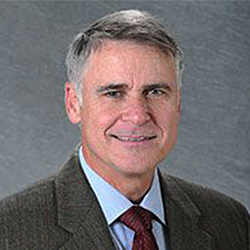Healthcare MBA Faculty Profiles
Get Program Details
This will only take a moment.
Step 1 of 2

Dr. Joseph Bocchino
Associate Professor of Clinical Research and Leadership
Dr. Joseph (Joe) Bocchino is an associate professor of clinical research and leadership at the George Washington University. Bringing decades of executive experience, he has made significant contributions across the pharmaceutical, healthcare, and hospitality industries. His corporate experiences have included hospital assignments; assignments in both the U.S. domestic markets and global markets; responsibilities in pharmaceutical clinical research, manufacturing and marketing environments; medical device development and manufacturing; and oversight responsibilities for regulatory affairs and product registrations.
An expert in corporate leadership, Dr. Bocchino has extensive experience in mergers and acquisitions, focusing on evaluating and integrating human leadership capital during corporate transitions. His strategic insights have been instrumental in guiding businesses through complex transformations.
At GW, Dr. Bocchino teaches in the School of Medicine and Health Sciences and in the Graduate School of Education and Human Development. He continues to conduct research and write, presenting his work in international academic forums.
